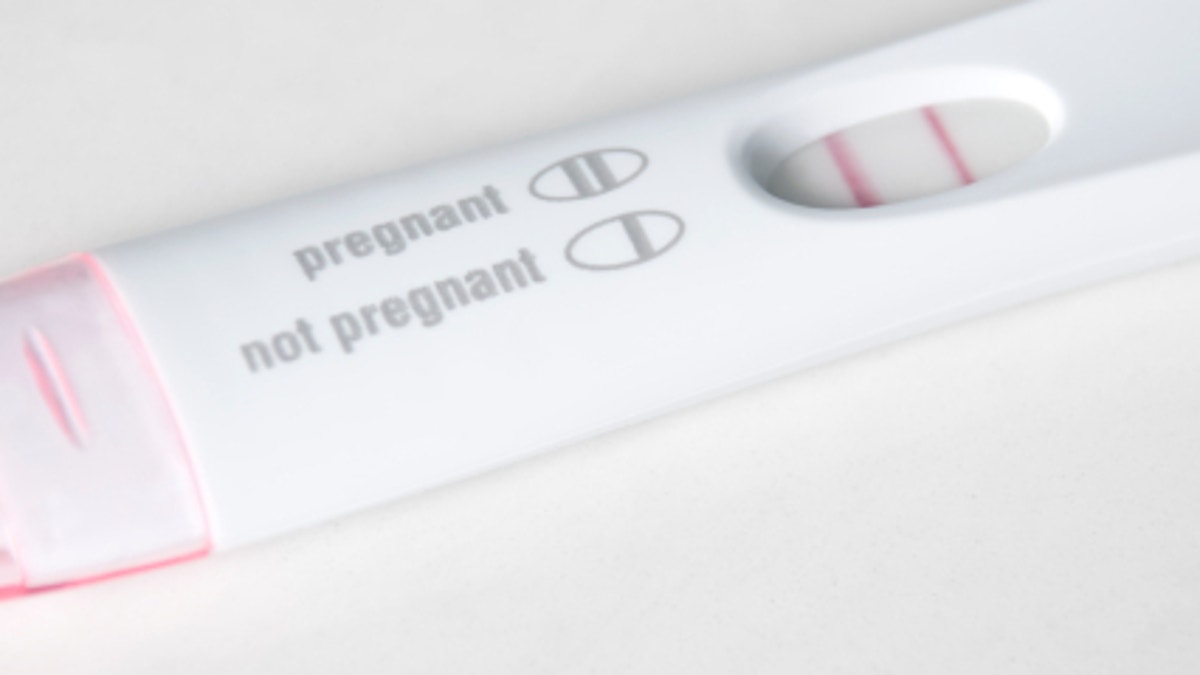
(Copyright (c) 2008 by Paul Velgos. All rights reserved.)
How complicated could at-home pregnancy tests possibly be? You pee on a stick and find out whether or not you're going to have a baby. If only. While these tests have been around since 1976, many myths are still swirling around about how accurate they really are and what exactly they can tell you.
RELATED: All Your Pregnancy Questions, Answered
To suss out home pregnancy test fact from fiction, we tapped Dr. Mary Jane Minkin, clinical professor of obstetrics and gynecology at Yale University School of Medicine. Here are the four biggest misconceptions that she cleared up.
MYTH: At-home tests can confirm that you’re expecting right away.
Let’s clear this up: Pregnancy test are generally accurate—according to one study, they accurately predict up to 97 percent pregnancies depending on the brand—but they won’t offer an immediate answer. Minkin explains that it can take around five days for the fertilized egg to implant itself in the uterus, at which point it stimulates the production of hCG, a hormone secreted during pregnancy. Even then, the amounts can be barely detectable, so it could take another week before there’s enough hCG to catch on a pregnancy test.
RELATED: 10 Foods Pregnant Women Shouldn't Eat
“Plus, things like stress can throw off ovulation, so even if you think you are scheduling everything out to the T, your body could naturally be delayed a little bit,” she said. “If you have sex and take a pregnancy test a few days later, it can still come back negative. That doesn’t mean the test is not accurate or you’re not pregnant, it could mean that you’re doing it too early.”
All that means timing is everything when you’re trying to find out with you’re a mom-to-be. If you’re trying to get pregnant (or verifying an unplanned pregnancy), know that a negative isn’t always a no—you could have jumped the gun. Wait until a couple days after your missed period or retest within a week to reconfirm.
MYTH: Nothing can trip up at-home pregnancy test results.
RELATED: Pregnancy 101
It’s true that things like exercise, the food you eat, stress, even drinking and smoking, won’t impact the body’s production of hCG once the egg is implanted.
“But certain fertility treatments contain hCG, which can lead to a false positive,” Minkin said. “It can be really tough, especially when you really want to get pregnant, to find out that you’re actually not.”
In a healthy pregnancy, hCG levels double every two to three days. Because at-home tests only measure if it’s present at all and not exact levels of the hormone, if you’re using fertility meds it’s best to confirm whether you’re expecting with your doctor. Your doc can let you know the best times to do a test, and can perform bloodwork that tracks hCG more precisely.
RELATED: Are You Really Pregnant? The Truth About Early Pregnancy Tests
MYTH: No need to spend a lot of money—there are tons of cheap, natural ways to do a pregnancy test.
With alternative medicine practices making a big comeback, it may be tempting to skip the drugstore and head to the pantry. The Internet is rife with DIY tests claiming they can confirm a pregnancy. We’ve seen everything from peeing on dandelion leaves and bleach to inserting an onion into your lady bits overnight and seeing if your breath smells like the pungent veggie the next day. However, these old wives’ tales are totally busted.
“Besides hCG, the body doesn’t secrete anything in the urine that would give you a clue that you’re having a baby,” Minkin said. “So if the test doesn’t measure hCG specifically, and no natural method does, it’s not going to prove anything.”
It’s better to pony up the $8 to $20 for a drugstore test and have more piece of mind than waste time with sketchy “holistic” methods.
RELATED: 15 Important Factors That Affect a Woman's Fertility
MYTH: New urine tests can also reveal the gender of the baby.
You may be eager to find out the sex of the baby ASAP, but at-home urine tests promising to nail the sex of the baby are unfortunately nothing more than a gimmick.
“There are absolutely no sex hormones in urine,” Minkin said. “HCG increases the same amount for boys and girls, so with a urine test, there is no way to know the sex of the baby.”
Before you paint the nursery and start picking out names, wait until an ultrasound confirms—they’re usually done at weeks 16 to 20, depending on the position of the baby, and are the only accurate way to pinpoint the gender.







































